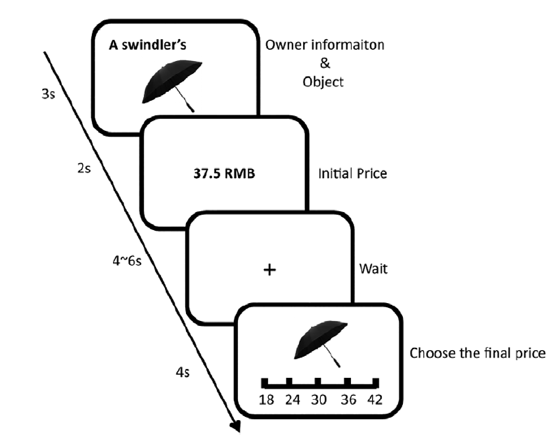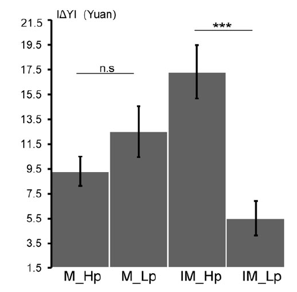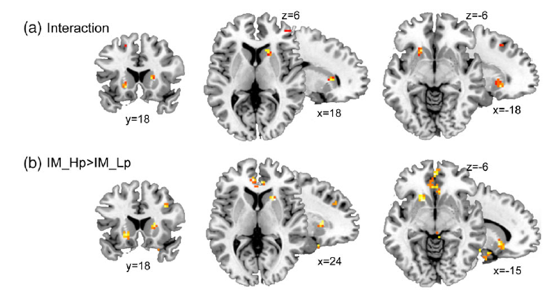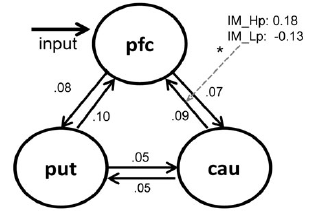The neural mechanisms underlying this “moral contagion effect”on hypothetical judgments of economic value

Moral contagion is a phenomenon in which individuals or objects take on the moral essence of the people who are associated with them. Fang Cui,an associate professor in our college of Psychology and Jie Liu ,an assistant professor in Brain Disease and Cognitive Center, cooperated to conduct a study on the neural mechanism of moral contagion andrevealed the neural mechanisms underlying this “moral contagion effect”on hypothetical judgments of economic value.The research waspublished in Human Brain Mapping, an important international journal in the field of neuroscience.
Background
Previous studies have found that individuals value objects associated with moral and likable people more than those associated with immoral and dislikable people. For example,“moral contagion” affect individuals' decisions in multiple contexts (e.g., purchase decisions; auction of celerity belongings; choice of organ transplant donors). In specific,individuals valued objects more if they were associated with respectable people and less if they were associated with immoral people. However, the neural mechanisms underlying this “moral contagion effect” have not yet been explored.
Experimental design
This team designed a “Second-hand Goods Pricing” task,and combined it with functional magnetic resonance imaging to explore the neural mechanisms underlying this “moral contagion effect”.Participants were asked to play a “Second-hand Goods Pricing” game.

Figure 1
Results and Discussion
Behaviorally, this study found a significant devaluation effect for immoral owners and a weaker reverse effect for moral owners(Figure 2).

Figure 2 Behavioral results
On the neural level,this study showed that the devaluation effect was primarily driven by neural responses in the dorsal striatum (mainly the caudate nucleus) that were triggered by high initial prices assigned to the “contaminated” objects(Figure 3).

Figure 3Brain activationresults
Dynamic causal modeling revealed that the high initial price assigned to “contaminated” objects led to increased effective connectivity from the caudate nucleus to the ventromedial prefrontal cortex—the brain area that integrates values during decision making.

Figure 4 3Dynamic causal model results
The present study shows
the dorsal striatum,especially the right dorsal striatum, plays an important role in the economic effect of moral contagion,and the whole value decision-making process may involve the brain network composed of dorsal striatum and ventromedial prefrontal cortex.The findings have significant implications for future research on the manner in which morality shapes human valuation systems.
Paper information
Liu, J., Liao, C., Lu, J., Luo, Y. J., & Cui, F. (2019). Moral contagion: Devaluation effect of immorality on hypothetical judgments of economic value. Human brain mapping, 40(7), 2076-2088.
Human brain mapping is a journal of jcr2 District, Chinese Academy of Sciences (upgraded edition in 2020). Liu Jie, an assistant professor of the center for brain disease and cognitive neuroscience, Shenzhen University, is the first author of the paper, and Cui Fang, an associate professor of basic psychology department of the College of psychology, Ministry of education of Shenzhen University, is the corresponding author of the paper. Shenzhen University is the first communication unit. The research work is supported by the National Natural Science Foundation of China.

 WeChat
WeChat